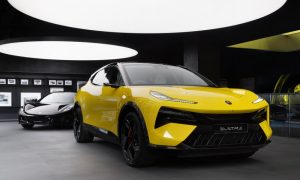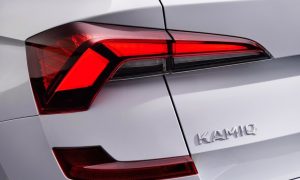
Hyundai Motor Group (the Group) today announced its goal to become one of the world’s top 3 EV manufacturers by 2030 through the combined sales of Hyundai Motor, Kia and Genesis electric models, at the groundbreaking ceremony of Kia’s dedicated plant for purpose-built vehicle (PBV) production in Korea. The Group also highlighted its plans to invest KRW 24 trillion in the domestic EV industry through Hyundai Motor, Kia and Hyundai MOBIS by 2030.
The Group announced plans to significantly expand the annual EV production in Korea to 1.51 million units and global volume to 3.64 million units by 2030. To enable such plans, Hyundai Motor and Kia, alongside with Hyundai MOBIS, plan to invest KRW 24 trillion (approximately USD 18 billion) in the EV sector domestically.
The Group’s large-scale investment aims to upgrade Korea’s EV ecosystem and strengthen its role as a hub for driving innovation in the global automotive industry. It is also expected to promote a virtuous cycle of domestic EV production, R&D, infrastructure and related industries.
To enhance the domestic EV production capacity, Kia is building a new dedicated plant to produce electric PBVs, while also expanding the existing EV lines at plants in order to expand the production capacity of EVs.
In addition, the Group will invest heavily in R&D, such as developing a platform for next-generation EVs, expanding product line-ups, developing core parts and advanced technologies, and establishing research facilities. It will also promote technology development with its partners.
This will enhance integrated marketability across hardware and software, including diversification of dedicated platform product line-ups, advancement of power electric (PE) systems that are key to EV performance, such as batteries and motors, and development of technologies to increase all-electric range (AER) on a single charge.
Activities will be undertaken to accelerate the development of next-generation platforms to improve the performance of EVs. The Group plans to sequentially develop dedicated platforms for each vehicle class under the Integrated Modular Architecture (IMA) system, including the ‘eM’ platform designed exclusively for passenger EVs, which will be introduced in 2025. Platforms using IMA can standardise batteries and motors to increase product development speed and efficiency.
In addition, the companies will actively build a high-speed charging infrastructure to maximise charging convenience for EV customers and to continuously expand the charging network in Korea. In April 2021, the Group launched E-pit, a high-speed EV-charging brand, and also launched the E-pit Charging Service Platform (E-CSP) in the following year.
Based on EV sales from Hyundai, Kia and Genesis, the Group plans to enter the global top 3 by 2030 based on the continuous investment. The Group also announced that it plans to significantly expand the annual EV production in Korea to 1.51 million units and global volume to 3.64 million units by 2030.
In 2030, Hyundai Motor Group will have a total line-up of 31 EV models, including models from Hyundai Motor, Kia, and luxury brand Genesis. Kia will launch EV9, its first three-row seat electric flagship SUV, this year and Hyundai Motor plans to launch the IONIQ 7 in 2024.
Hyundai Motor Group to bolster competitiveness of auto parts through cooperation program
Last year, Hyundai Motor Group announced a new sustainable partnership program to strengthen the competitiveness of the Korean automotive industry and the future automotive era. The Group has also operated a program of KRW 5.2 trillion to better support suppliers on their profit and loss, liquidity and competitiveness improvement measures.
In particular, the Group plans to significantly expand support for suppliers to play a leading role in accelerating the electrification transition of the auto parts industry and contribute to the qualitative growth of the Korean auto industry.
The Group will share cost burdens with its suppliers on the fluctuation of raw materials and reflect those changes in the prices of goods provided. It has payed around KRW 3.4 trillion for the increase in raw material delivery to more than 300 primary suppliers last year.
To help enhance suppliers’ liquidity, the Group is establishing a fund to enable suppliers of internal combustion engine parts who wish to diversify their businesses, including the development of eco-friendly vehicle parts so that they can borrow business funds at low interest rates compared to the market.
The Group provides external management consulting to suppliers seeking to develop new future business strategies and discover new business growth engines, while helping executives and employees of partner companies to develop future mobility capabilities through special training.
Through these strategic investments, the Group plans to hone the Korean EV industry’s competitive edge to deliver unparalleled products and services that will drive the paradigm shift in the global mobility industry.
Previous article
Isuzu UK celebrates a decade of Football Shirt Friday


